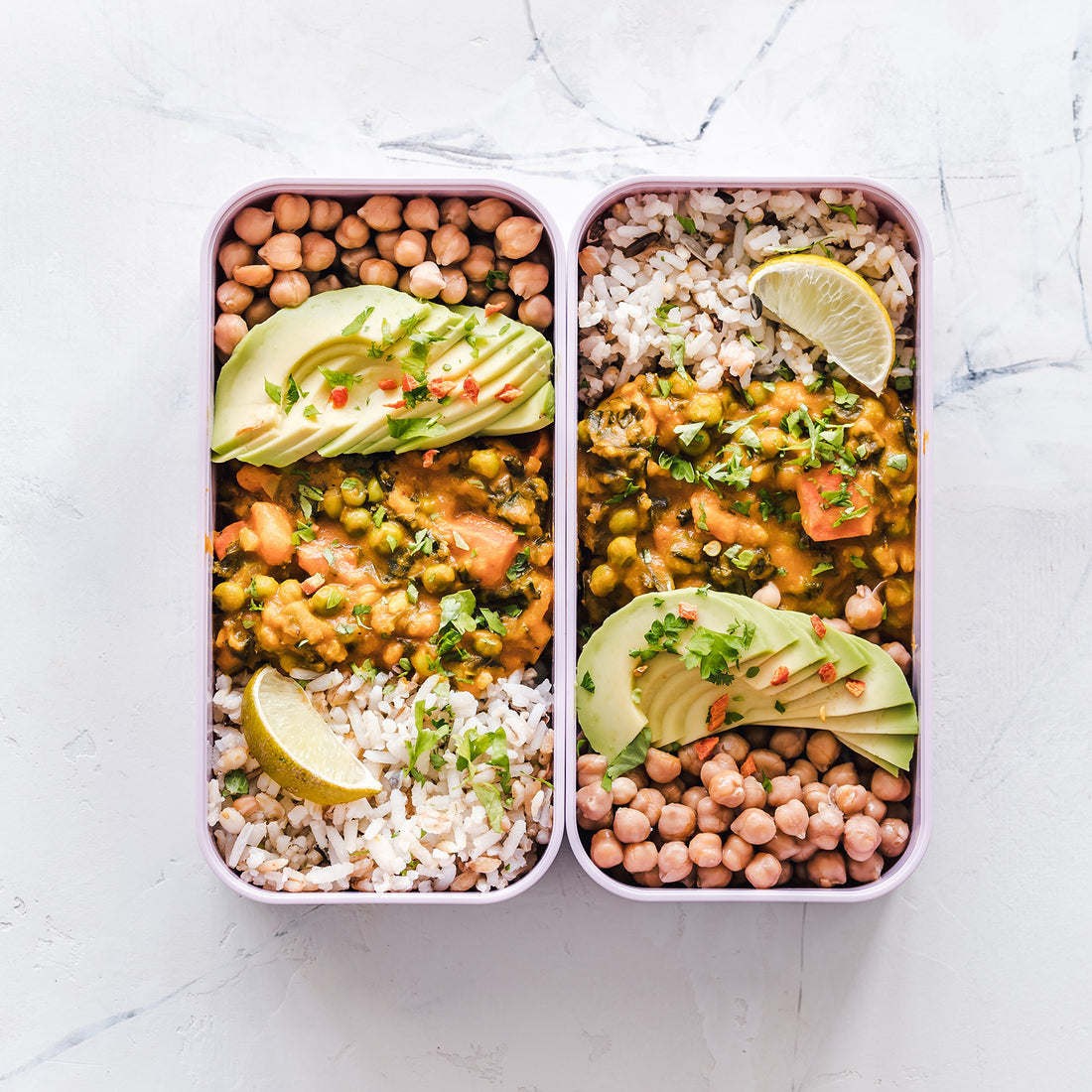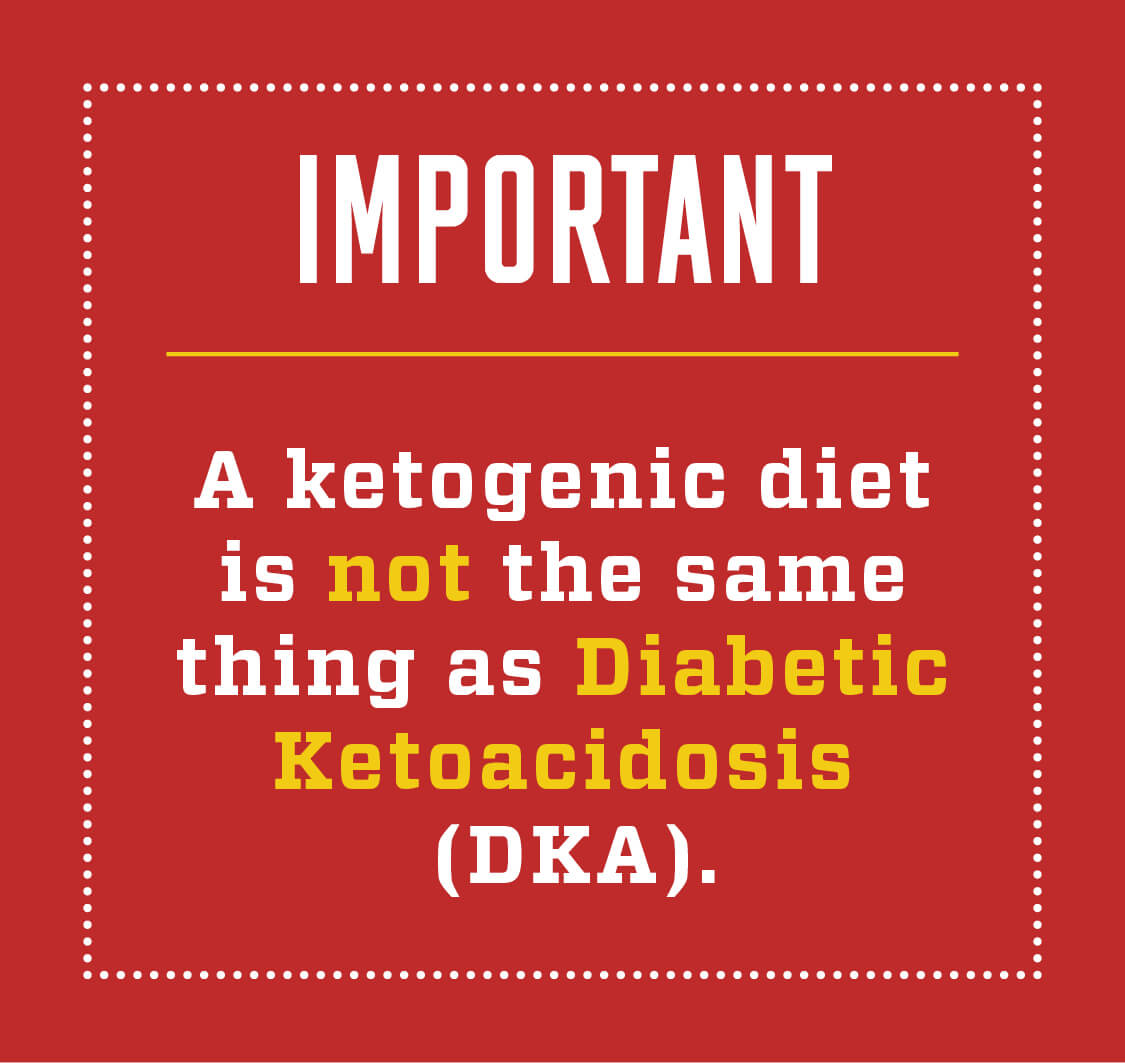
What is Nutritional Ketosis?
Share
Medically Reviewed by Dr. Bryan Seigel D.C., P.L.C.
At this point you’re probably familiar with the terms keto, ketosis, and ketogenic diet. These are actually broad terms that cover lots of different types of keto diets. There are many ways to approach the ketogenic diet, and even “nutritional ketosis” can be broken down into more specific terms based on meal timing, dietary preferences, and other factors. We’re going to focus on the broad term of nutritional ketosis here, since it’s important to distinguish it from a more general keto diet, and from lazy keto.
What keto isn’t.
Before we dive into that, let’s talk about one thing that a ketogenic diet is not: DKA or Diabetic Ketoacidosis. There are a lot of terrible (read: unscientific and flat out wrong) articles on the internet trying to scare people away from keto by saying it will cause ketoacidosis. That, dear  reader, is virtually impossible. DKA happens when a person with diabetes has both elevated blood glucose AND elevated ketones (and let’s specify ENDOGENOUS ketones, the ones produced in the liver, not consumed in a drink). In this situation, there is glucose in the blood, and a lot of it, but cells can’t use it because there isn’t enough insulin to unlock membrane channels to allow the glucose to be processed, keeping all this glucose circulating in the blood. Since cells can’t see the glucose to use it, the liver starts making ketones. This is a serious complication of unmanaged diabetes, so if you have diabetes please talk to your doctor to make sure your treatment plan is up to date. You can be diabetic and stick to a ketogenic diet healthfully, but if you feel unwell or your blood glucose is out of control, talk to your favorite trusted healthcare professional.
reader, is virtually impossible. DKA happens when a person with diabetes has both elevated blood glucose AND elevated ketones (and let’s specify ENDOGENOUS ketones, the ones produced in the liver, not consumed in a drink). In this situation, there is glucose in the blood, and a lot of it, but cells can’t use it because there isn’t enough insulin to unlock membrane channels to allow the glucose to be processed, keeping all this glucose circulating in the blood. Since cells can’t see the glucose to use it, the liver starts making ketones. This is a serious complication of unmanaged diabetes, so if you have diabetes please talk to your doctor to make sure your treatment plan is up to date. You can be diabetic and stick to a ketogenic diet healthfully, but if you feel unwell or your blood glucose is out of control, talk to your favorite trusted healthcare professional.
What keto is.

For a great review of how to start the keto diet, check this out. But, what is nutritional ketosis? It’s a specific way of eating where you induce ketosis strictly by dietary choices. You might call this the core of keto, because it’s the ideal way to maintain ketosis sustainably.
If you’re following a nutritional keto diet, exogenous ketones don’t count. What are exogenous ketones? These are the ketones you consume from external sources, like in a drink. Exogenous ketones are a great tool for boosting energy, making the transition to keto easier, and extending the time you can fast (if you’re into fasting), among other benefits. Drinking ketones will increase the ketones in your blood and urine, and you burn them for fuel just like the ketones you produce from burning the fats in food or stored in your own tissues. But, since you produced these ketones with your wallet and not with your liver, they are not part of the more strict nutritional ketosis framework.
“Does this mean I have to be even more strict with nutritional ketosis?”
Well, yes. You’ll want to focus on whole foods as opposed to processed foods, the former being generally healthier anyway. But, you can still take some supplements to enhance your health, such as electrolytes, which are highly recommended on any keto diet. You can also hack your ketone production WITHOUT taking exogenous ketones. MCT oil (and powdered versions) can boost your own ketone production. Since this is a food that you’re converting into ketones, this is a great way to increase the ketones that you make and burn when you’re staying away from the exogenous kind.
There are good reasons to choose nutritional ketosis for long-term health. To restate, you’ll be focused on whole-food sources of nutrients. This means choosing fresh vegetables and a few fruits, meats, poultry, fish, and dairy (if you tolerate it) while keeping your net carbohydrate intake to 20g or less per day. This does not mean drive-through that happens to fit your macros, nor does it mean macro-friendly fake processed foods. Sure, these things are nice treats sometimes, and they might be the only option if you’re traveling or otherwise not able to prepare meals. But relying on these processed foods is called lazy keto, and is nutritionally suboptimal for health (even if you can technically still lose weight on it).

When you have to do lazy keto, it’s still possible to choose nutritious foods on the go or in small spaces without a lot of kitchen prep space. Bacon and cheese-covered burgers are great but aim for the salad with a variety of greens and other veggies topped with a protein like steak or grilled chicken. Cheese sticks, jerky, and hard-boiled eggs are easy to eat on the go, but celery with chicken salad filling is even better. One of our readers keeps a daily routine checklist and at the very top lists “Eat 3 Different Vegetables.” It keeps her from eating a diet made entirely of cheese, so you can adapt her tactic to make sure you get a variety of fresh foods in your day, even on the go.
Nutritional ketosis is the overwhelming winner when it comes to metabolic adaptations, and here we’re talking about mitochondria. Indelibly known as the powerhouse of the cell, these bacteria-like organelles convert fuel, like ketones, into the energy we use to power literally everything that happens inside our body, from cell division to sprinting, called ATP (Adenosine Triphosphate). Nutritional ketosis supports mitochondrial health, keeping them plump and fast. No one wants flattened, slow mitochondria, they don’t churn out the kind of energy we need all day. Sticking to a nutritional keto diet enables mitohormesis, a state where mitochondria are better adapted to stress, survive longer, produce more antioxidants, and generate more energy on-demand, when you need it. If you’re an athlete, you’ll notice this effect within weeks of changing your way of eating. Even if you’re not an athlete, remember that you have mitochondria in your brain, so you can expect clearer, faster thinking and more stable moods.
The other cool thing is that running on real, whole foods instead of processed foods supports a healthy gut microbiota. You can expect healthier digestion as well as, get this, absorbing fewer of the calories that you eat. That’s right, there is a fascinating feedback loop between your gut bacteria and your hypothalamus that tells your intestines how much of the energy you take in that you also will absorb. Processed foods ramp up the calories you absorb, so focusing on whole foods means you can eat the same amount (or even more) and still lose weight. This is pretty new research that you can take advantage of and share with your loved ones.
Let’s review the important points.

What is nutritional ketosis? This is a type of ketosis that is reached from choosing whole, nutrient dense foods and relying only on endogenously produced ketones. Other supplements are permitted, and even encouraged, such as electrolytes, but exogenous ketones are excluded. Choosing whole foods has the added benefit of reducing the amount of calories you absorb from your meals, as opposed to processed foods which increase calorie absorption. Nutritional ketosis supports healthy energy production and mitochondrial health, and is the optimal long term plan for a sustainable keto way of eating.
References:
Gershuni, V. M., Yan, S. L., & Medici, V. (2018). Nutritional ketosis for weight management and reversal of metabolic syndrome. Current Nutrition Reports, 7(3), 97–106. https://doi.org/10.1007/s13668-018-0235-0
Miller, V. J., Villamena, F. A., & Volek, J. S. (2018, February 11). Nutritional ketosis and mitohormesis: Potential implications for mitochondrial function and human health [Review Article]. Journal of Nutrition and Metabolism. https://doi.org/https://doi.org/10.1155/2018/5157645
Post, A. B., The Washington. (n.d.). Two major studies just showed what a processed diet can do to our bodies. ScienceAlert. Retrieved February 13, 2021, from https://www.sciencealert.com/there-s-now-research-to-back-the-trend-of-scorn-towards-processed-food
